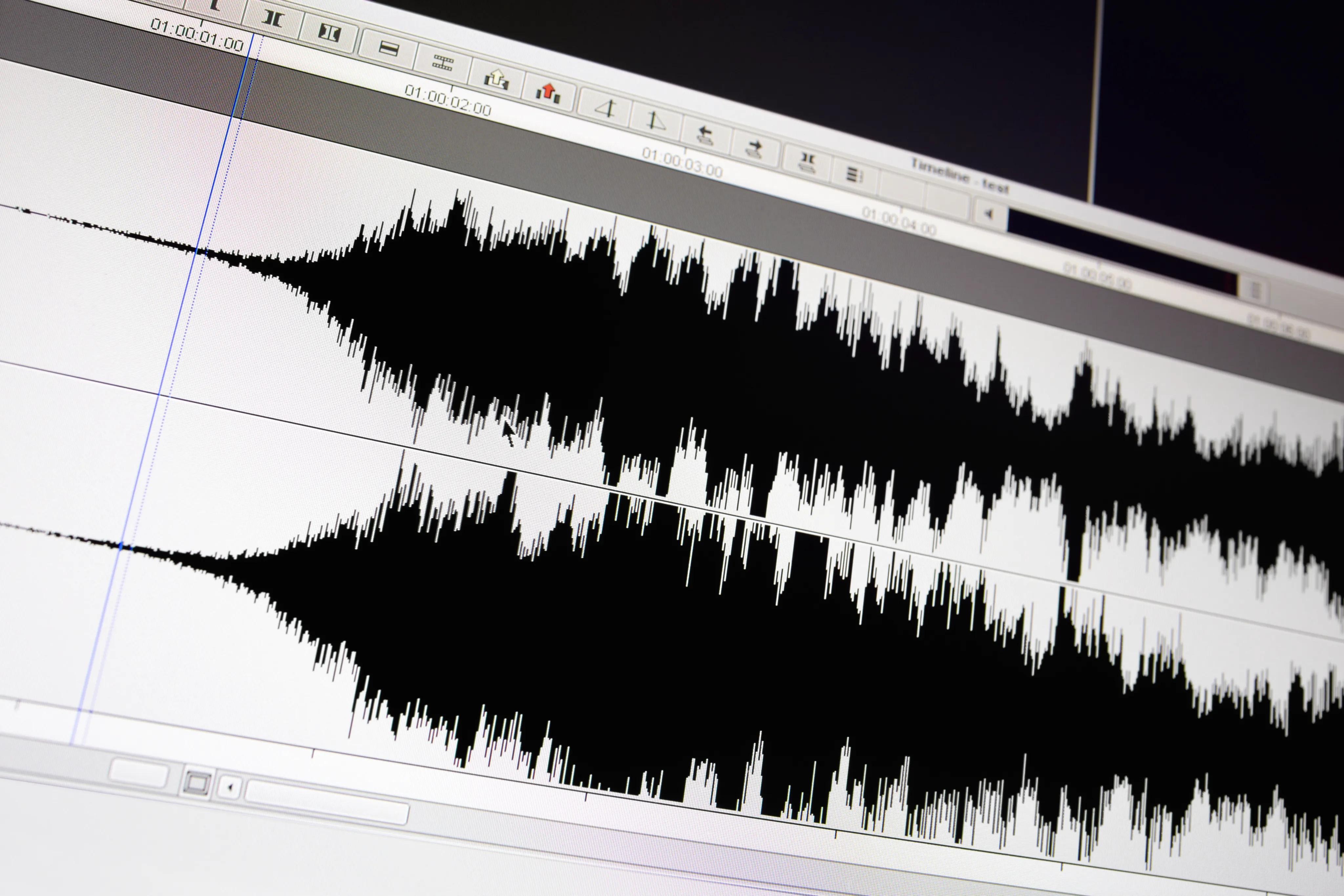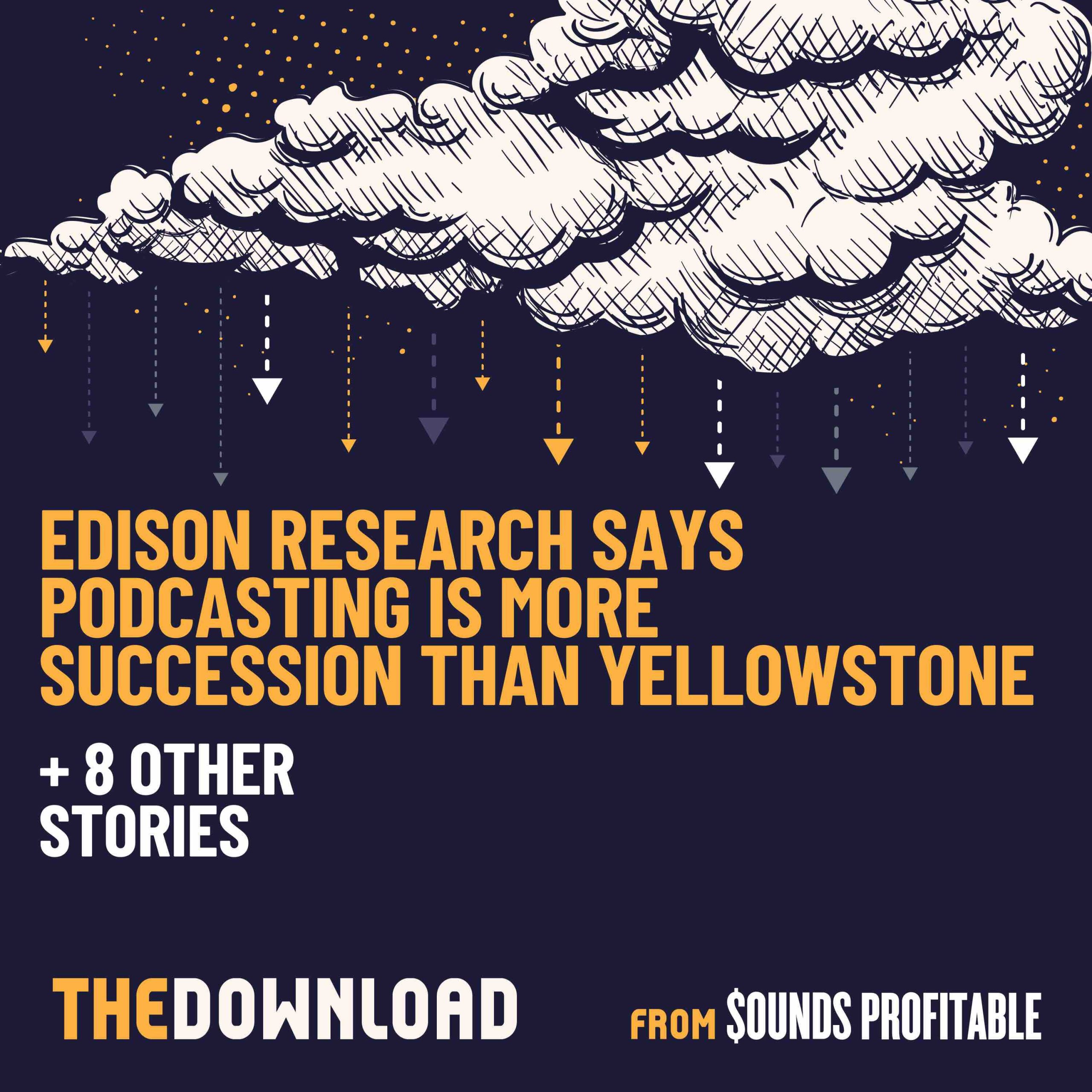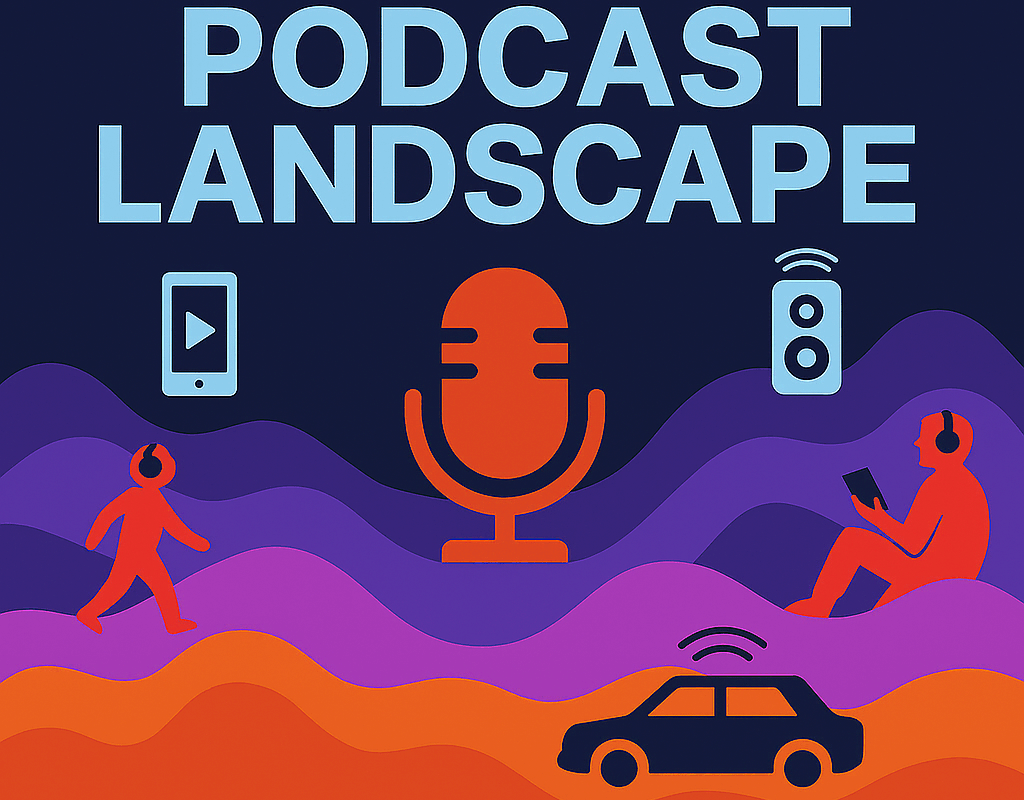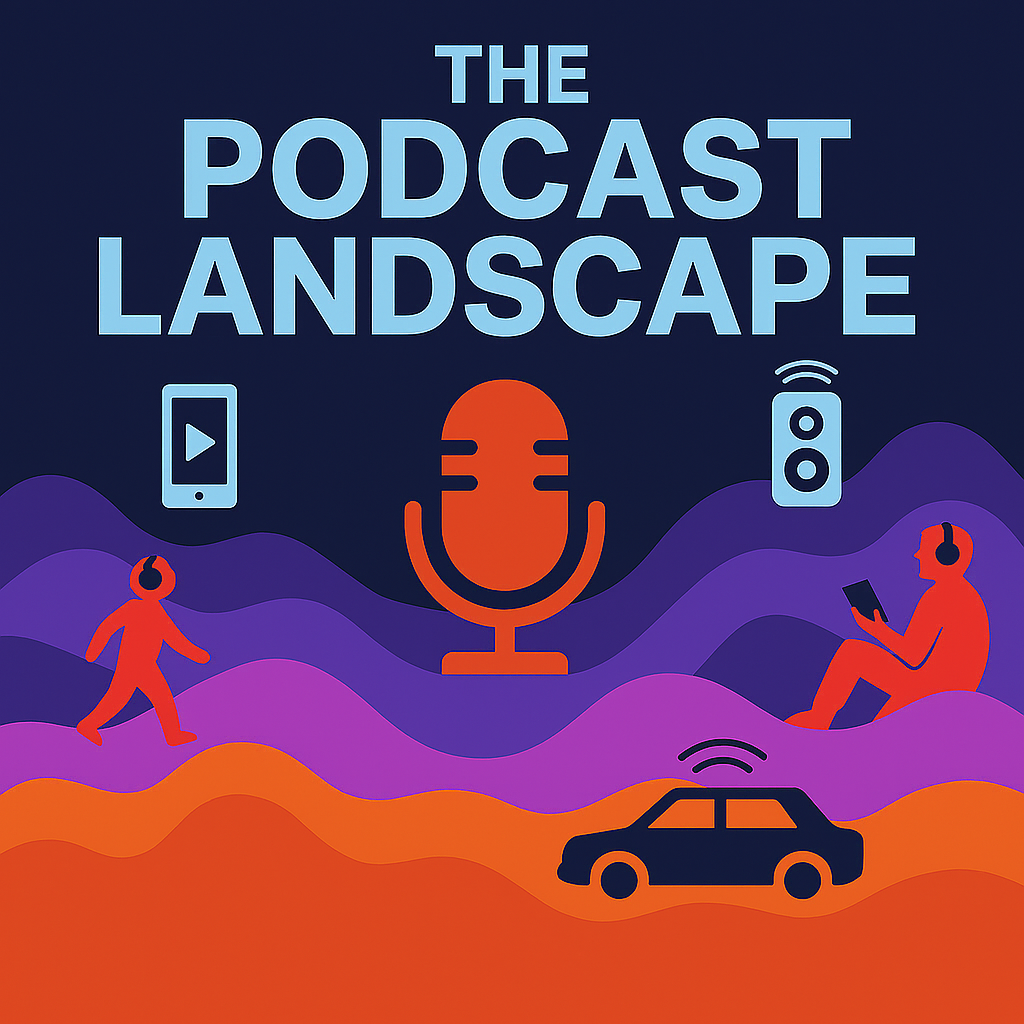This week on The Download: Edison Research says podcasting is more Succession than Yellowstone, Reddit launches new take on live podcasting, Google’s Adtech is dropping IP, new data says podcast ads are overfishing popular ponds, and we spotlight #PodcastingSeriously.
Last Friday the Edison Research blog posted “Podcasting’s Opportunity in Wide Open Spaces.” In addition to reminding readers of The Chicks’ 1998 single from their fourth studio album, the post highlights a regional gulf in what counts as “popular” in podcasting.
The comparison used highlights how Succession and Yellowstone are comparably popular television series, but based on one’s physical location in the country it’s highly likely they won’t see much advertisement or social media chatter for one over the other. More rural TV viewers will more likely to hear about and actively watch Yellowstone while Succession finds more attention in metro centers.
“New data from Edison Research’s Infinite Dial study – sponsored by Wondery and Art19 – shows that as of today podcasting is more of a “Succession” story.”
Consider this a tease from Edison Senior Director of Research (and, of course, my co-host on La Descarga) Gabriel Soto’s talk at Podcast Movement Dallas this August.
“We in the podcasting space regularly remark that with four million titles, there’s a podcast for everyone. And while that’s surely right in theory, that doesn’t mean that enough of a match has yet happened to bring all the possible listeners to the space. One might argue that indeed there are a lot more podcasts talking about Succession than Yellowstone, and that might be part of the issue.”
A lot of people got a three-day weekend in the US thanks to a national holiday, but this Monday Arielle Nissenblatt was on the podcasting streets breaking social audio news. In a Twitter thread Nissenblatt detailed the launch of social media platform Reddit’s new Talk feature that shares some DNA with the social audio craze. The twist with Reddit Talk is those who use it get placement over any relevant subreddits that fit under a broad chosen topic.
“If you host a Talk from your Reddit profile and pick up to 3 topics, you’ll appear at the top of Reddit to millions of users. e.g., if you pick “Finance” topic, everyone who follows r/wallstreetbets, r/personalfinance, etc will see your Talk.”
Currently, Talk is only available to those chosen by Reddit via an application form. Niche content gets niche listeners, and Reddit is the king of niche. While we’ve been burned as an industry before on social platforms diving into podcasting, this measured approach seems like a promising one.
Google has updated Universal Analytics and things aren’t going so hot. On Tuesday Ad Exchanger’s James Hercher posted “Marketers Have One Year to Migrate to the New Google Analytics – But It’s Already a Mess.”
“When Google announced the expiration date on Universal Analytics earlier this year, it said it would also cease logging or storing IP address data – a crucial datapoint that qualifies as personally identifiable and thereby subjects Google Analytics to tough interpretations of GDPR.
Removing IP addresses may not be enough for Google Analytics to stem the tide of GDPR suits. But privacy concerns do explain why Google will force a change across its customer base, rather than continue to offer multiple services.”
While Google impression tracking pixels do work in podcasting, Google refuses to accept IP and any other client info forwarded to it, so attribution from Google was unlikely in podcasting. With IP going away on the website side, it’s safe to say there will be no Google solution for podcast attribution as we know it today. However, the move by big companies like Google and Apple away from IP addresses will always be concerning for podcasting. There’s evidence to suggest IP address tracking won’t be outright removed from the industry, but it still will decline to the point one should expect methods of attribution to undergo a metamorphosis within the next 12 to 18 months.
This Tuesday Pierre Bouvard of Westwood One published findings that might seem easy to predict, but are important to acknowledge regardless. It seems some of the biggest spenders are potentially overfishing the pond that is podcasting.
“The number of times podcast listeners hear an ad campaign is soaring. According to Podsights, the leading podcast attribution measurement firm, average podcast ad frequency has doubled in the past year, reducing podcast conversions.
In Q1 2022, the average podcast campaign ad frequency measured by Podsights was 6.32, a twofold increase from Q1 2021 [when it was] (2.97).“
Bouvard reports the Podsights data indicates this uptick in ad frequency is leading to knock-on effects, such as site visits driven by podcast ads hitting a record low in Q1 of this year. Luckily, it’s not all bad news as he brings three solid strategies to encourage podcast reach growth. A consistent theme across all three is elegant in its simplicity: buy ads on podcasts beyond the same few dozen podcasts everyone is buying ad space on.
Frequency is no substitute for reach, and there are many podcasts waiting in the wings to run ads. Spreading those ads around instead of targeting the already-saturated big names in the market will quickly lead to results.
Now, if you’ll indulge us in a little promotion, we’d like to take a moment to highlight Podcasting, Seriously from LWC Studios, shining the light on a forward-thinking company that continues to nurture the talent we need to make and keep a thriving podcast industry.
This week, LWC Studios announced the expansion of its Podcasting, Seriously Awards Fund to include reimbursements for audio production education and training for BIPOC and LGBTQ+ independent audio creators. The company launched the Fund in early 2021 with partners AIR, Pacific Content, Acast, Triton Digital, and Sounds Profitable to “support independent BIPOC, Queer and Trans audio producers in submitting high-quality work to media and journalism awards.”
More money going to diversifying podcasting is always a good thing, and Sounds Profitable is here for it. Our very own Bryan Barletta is on the Podcasting, Seriously advisory board and I’m on the fund team. You can learn more about the fund and apply, as with all stories covered on The Download, via the link provided in the description.
In this penultimate segment I bring you a double-stuffed story. Two international editions of the Infinite Dial have been published by Edison Research: Canada and Australia.
There’s plenty to learn in both but here’s some standout observations from the Canada presentation:
“Forty-three percent of Canadians 18+ listen to podcasts monthly, up five percentage points from 2021, which means that Canadians now outpace Americans (38%) and Australians (40%) for monthly podcast listening.”
In addition to that, 73% of Canadians listen to online audio. Spotify currently dominates that space with 40% of the audience, but YouTube is experiencing growth in the space and has caught up with 33% reporting listening to audio on YouTube in the past month. It seems Google’s moves on the market are working. Eagle-eared listeners will recall The Download on March 11th covering a story in which YouTube made a paid audio-friendly feature free for all Canadian users.
Meanwhile in Australia, monthly podcast listening for people 18 and up continues to trend up, increasing to 40% from 37% last year.
Finally, it’s time for our semi-regular roundup of articles that didn’t make it into today’s episode, but are still worth working into your weekend reading.
First: Spotify, Netflix and Aggregation by Stratechery.
Also: Universal Music Makes Its Data-Driven Ad Platform Play by James Hercher.
Finally: Mediatel’s UK-focused podcast database Audioscape has launched. Usually we only recommend articles but there’s not an abundance of IMDB-style podcast databases and it’s good to keep abreast of newcomers.


 "
"




